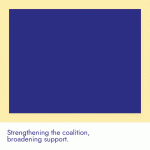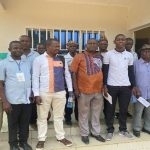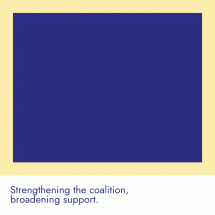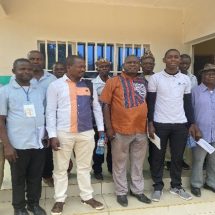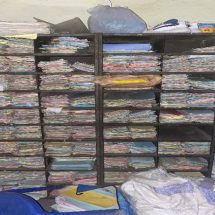The annual World Committee on World Food Security (CFS) conference hosted by FAO took place in Rome in October 15-19, 2018. Titled ‘Making a Difference in Food Security and Nutrition’, FAO’s 45th conference underscored the convergence of policy on food security and nutrition in the context of the 2030 Agenda for Sustainable Development. The participants included governments, CSOs, private sector and donor representatives, the conference reflected on the implementation of the Voluntary Guidelines on the Responsible Governance of Tenure of Land, Fisheries and Forests in the Context of National Food Security (VGGT).
As the world struggles to fight hunger and severe malnutrition by 2030 as envisioned in SDG2, key players in the sector of agriculture and related fields exchanged ideas and best practices including innovations during thematic events including one focused on ‘Supporting Progressive Realization of the Right to Adequate Food’ in the context of national food security. Recognizing positive strides made in reducing hunger globally, the World Food Day was celebrated, with a caution that much remains to be done to leave one behind. Current statistics indicate that over 800 million people still suffer extreme hunger globally. Several high-level sessions delved into the opportunities and challenges of achieving food security including linking the aspiration of VGGT and the SDGs; food production innovations and tools, addressing gender equality in meeting the food and nutritional challenge and mitigating against the risks of climate change and conflict among others.
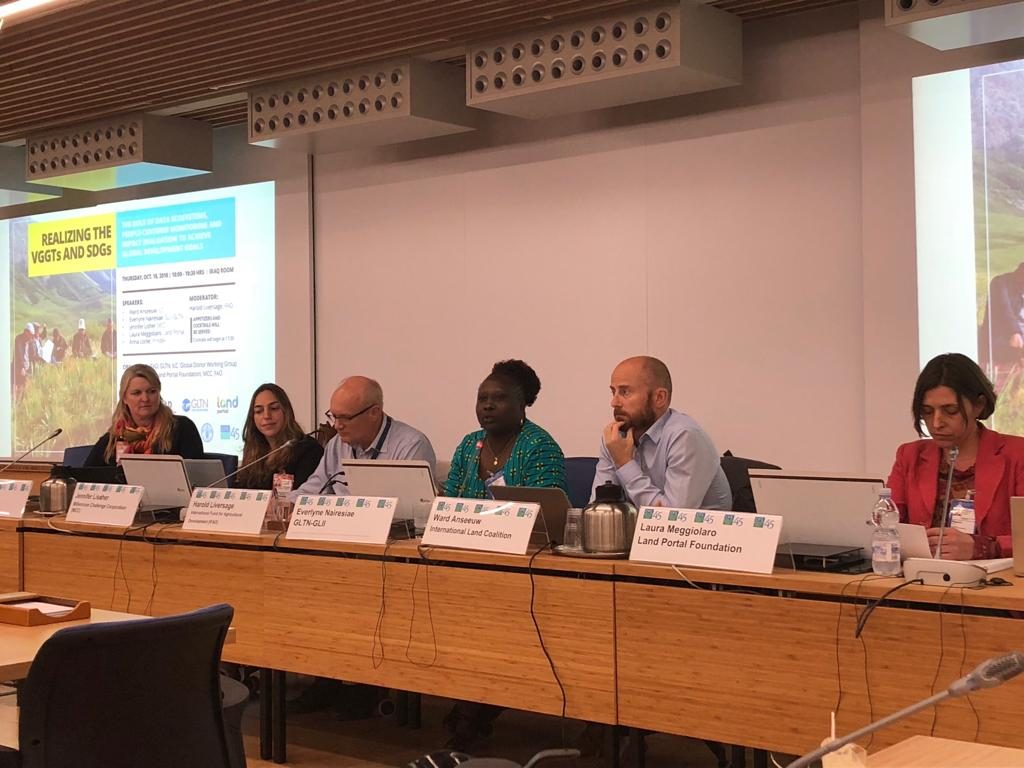
The Global Land Tool Network’s (GLTN) participation at CFS45 was inspired by the efforts of its members to address the root causes of food insecurity, putting land tenure and governance interventions at the heart of the VGGT framework. There is no doubt that securing land tenure and property rights for all is a fundamental ingredient to accelerating food production for food security and nutrition, especially for women, indigenous communities and vulnerable communities. Affirming the aspirations of the VGGT in securing tenure rights for all including access, ownership and control of land by women and local communities under formal and informal tenure. Through its partners GLTN has sustained this momentum through fit for purpose, gender responsive and pro-poor land tools that have been applied to positively transform security of tenure indirectly for millions of people globally.
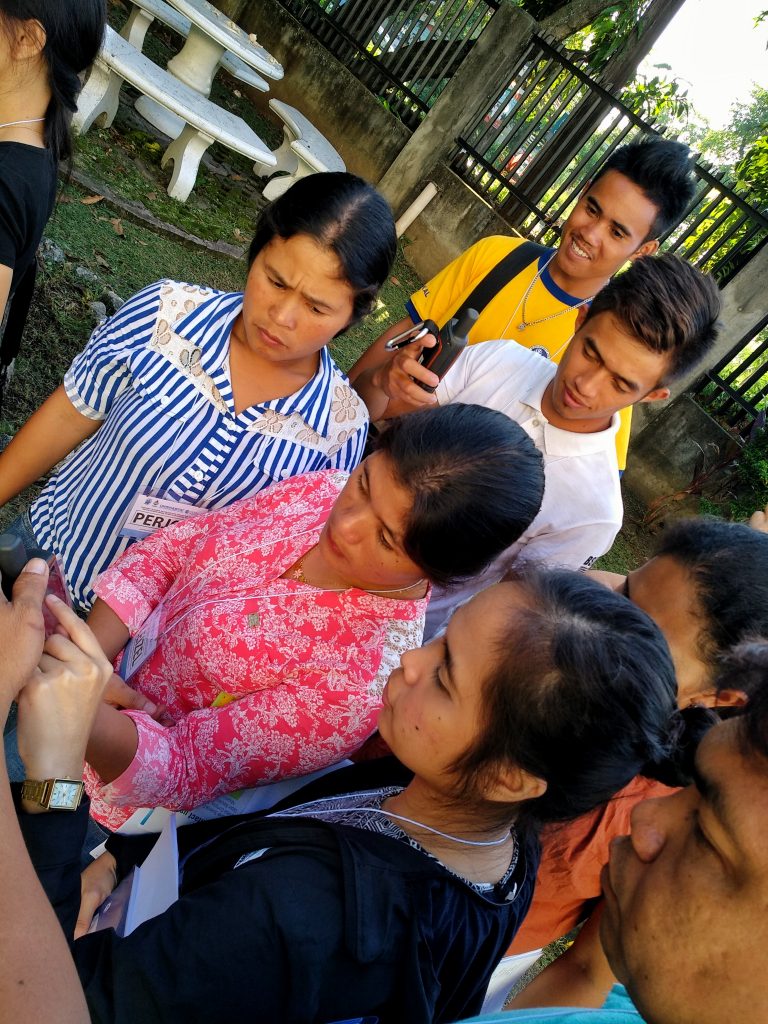
These tools have been developed to secure tenure rights for all, especially women and vulnerable communities in rural and urban context regardless of tenure regimes. Linking GLTN’s long term investment in shaping the understanding of tenure issues through the Continuum of Land Rights approach and members’ contribution that secured land tenure indicator 1.4.2 in the SDG1 through the Global Land Indicators Initiative (GLII), the conference was timely in reflecting on the advances in securing tenure rights for all, as a key component of the VGGT; towards achieving responsible land governance.
For GLTN, securing tenure rights for communities and individuals living under customary tenure and or urban informality is critically important for achieving sustainable food security and nutrition and reducing poverty. SDG5 underscores the importance of gender equality in accessing productive resources including agricultural land for women, further emphasizing the principle of gender equality aspired by the VGGT. Since women form majority of farm workers and producers of food globally and often with unequal rights to ownership and control over land compared to their male counter parts, GLTN partners continue to change this narrative to secure tenure rights for women through gender responsive tools that have continued to transform women’s tenure rights in communities globally.
100 Voluntary Guidelines on Tenure: Advancing women’s land rights towards achieving the SDGs
Taking each opportunity to share about GLTN’s work, successes and lessons learnt at this year’s CFS45, were Oumar Sylla, GLTN Leader and Everlyne Nairesiae, Coordinator of GLII. In a side event titled ‘100 Voluntary Guidelines on Tenure: Advancing women’s land rights towards achieving the SDGs’ organized by FAO offered a unique platform for Oumar Sylla to update the CFS members on the progress made and to reflect on key contributions from GLTN as a partner in the implementation of the VGGT. During this session Oumar shared the GLTN experiences and success stories of change in securing women’s land rights through various gendered tools implemented through country partners globally including Nepal, Philippines, Zambia and Uganda. Reflections from Marcela Villarreal the Director of Partnerships and South-South Cooperation Division at FAO, Oumar and others, resulted in animated discussions on how regional, national and local governmental institutions and development agencies can support the achievement of secure tenure rights for women in line with SDGs targets 1.4. and 5.a. while making deliberate link to SDG2.
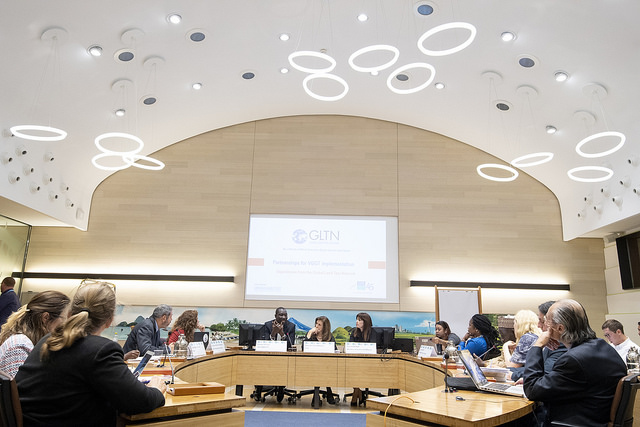
The session reflected on the opportunities presented by the SDG 2030 in securing women’s land rights and fostering countries’ accountability in implementation including adopting policies and legal reforms that secure women’s land rights, resourcing women’s land rights efforts, data collection for planning and decision making, while reporting of progress through CFS and SDGs related mechanisms. Session participants’ made their contributions to the discussion, highlighting areas where improvements are needed to strengthen security of women’s land rights including better linkages of the SDGs with the aspirations of the VGGT, more practical tools and approaches that are gender responsive and transformational to gender power relations for better outcomes on women’s land rights; and improve access to quality data on women’s land rights. The recommendations from this session affirmed the objectives of the GLTN Phase III strategy and underscore its partners’ commitment in putting more efforts in development and implementation of gender responsive tools; monitoring key progress and impact through robust indicators for generation of quality data for planning and decision making and capacity development
Ultimately, contributions from the panelists and inputs from participants affirmed the importance of gender equality in the ownership and control over land and its power to transform women’s economic empowerment and have a positive multiplier effect for the achievement of a range of SDGs including poverty reduction, food security and gender equality.
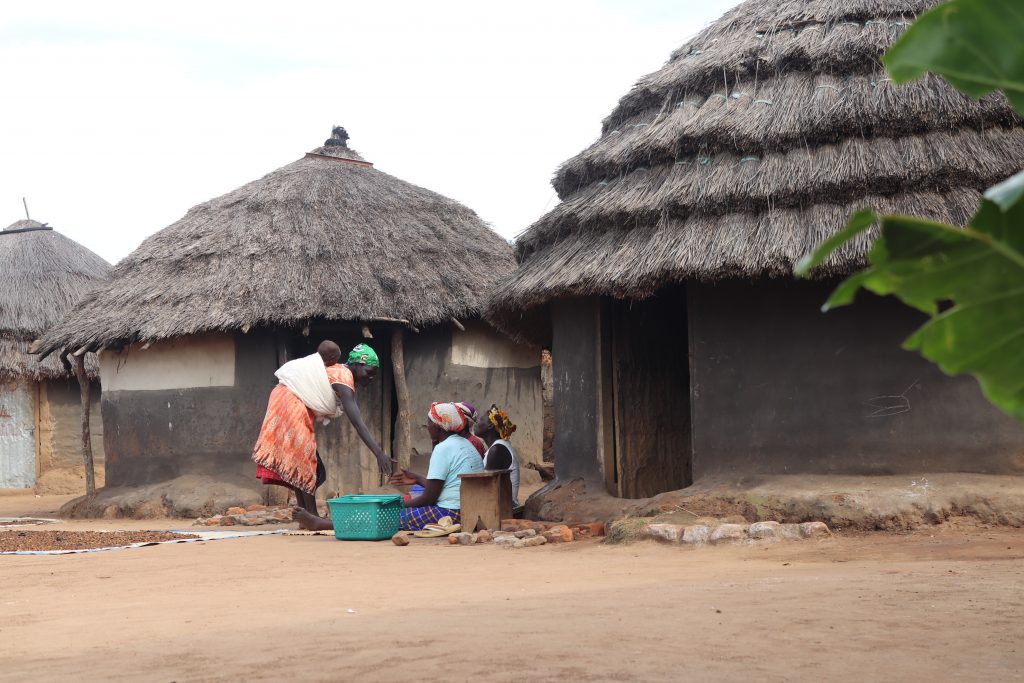
The role of data, monitoring and evaluation in achieving global development goals
In another session titled ‘The role of data ecosystems, people-centered monitoring and impact evaluation in achieving global development goals’ the GLTN team and others partners examined the use of data in monitoring progress and how impact of land tenure and governance interventions can be evaluated and communicated to governments, donors and private sector and other development agencies who continue to invest resources to achieve responsible land governance envisioned by VGGTs. The panelists underscored the importance of various sources of data ranging from official data from government, CSOs generated data, private sector and donors generated data, data from local communities and other agencies/institutions. These data is key in facilitating local, national and international dialogues on key issues on land governance, policy advocacy and influencing, planning and policy decisions.
In her contribution, Everlyne Nairesiae, Global Land Indicators (GLII) Coordinator at GLTN, reflected on the importance of global coordinated mechanisms for data initiatives that the GLII initiative has continued to coordinate and support. GLII continues to support the development and promotion of use of comparable land indicators, methodologies and data protocols that are nationally applicable and globally comparable among different initiatives including the monitoring of SDGs. The prospects of monitoring land related indicators in the SDGs is expected to provide official data and statistics generated through National Statistical Organizations (NSOs) and complemented by various agencies including data from CSOs including grassroots communities, the private sector was underscored. While acknowledging the importance of monitoring progress against specific land indicators in the SDGs, the need to go beyond the SDGs to expand data sources on key areas of land governance including land administration and conflict at national and regional levels to achieve comprehensive land governance monitoring in line with the GLII indicators was emphasized.
Jennifer Lisher of the Millennium Challenge Corporation (MCC) presented on the importance of impact evaluation in fostering accountability in land related interventions, while presenting the IFAD-GLTN Gguideline for Iimpact Eevaluation of Lland Ttenure and Ggovernance Iinterventions including a Theory of Change with clear pathways to key outcomes and impact. Other panellists including Ward Anseeuw of ILC, Laura Meggiolaro of Land Portal Foundation and Anna Locke of Prindex had their contributions focused on the importance of people -generated data promoted through the ILC Dashboard, transparency in data and use of open data sources; and the survey results from Property Rights Index (PRIndex) on perception of tenure security were shared during this session respectively. Participants were supportive of the various initiatives, acknowledging their importance in providing data for policy engagement at local level. Participants in the session challenged the panellists and their respective agencies to do more to bridge land data gaps, share data, better coordinate efforts and engage with governments to realise desired outcomes. Harold Liversage of IFAD, who chaired the session reflected on key issues that emerged from the discussion, underscoring the power of data as a tool for advocacy on responsible land governance; the strong link between the SDGs and the VGGTs both demanding data (administrative, geospatial and perception) for measuring progress in people’s lives. He also emphasized the need for better tools for monitoring and impact assessment on land tenure and governance interventions to enhance accountability and transparency among all stakeholders.
As GLTN looks forward to CFS46, more documented stories of change and transformation in securing tenure rights of women and other vulnerable groups from partners, communities and collaborating agencies; and in line with the aspirations of the VGGTs and Agenda2030 will be shared. The CFS remains an interactive and learning space for which GLTN finds importance for continuous support.
Article by Oumar Sylla (Leader, GLTN) and Everlyne Nairesiae (GLII Coordinator)



